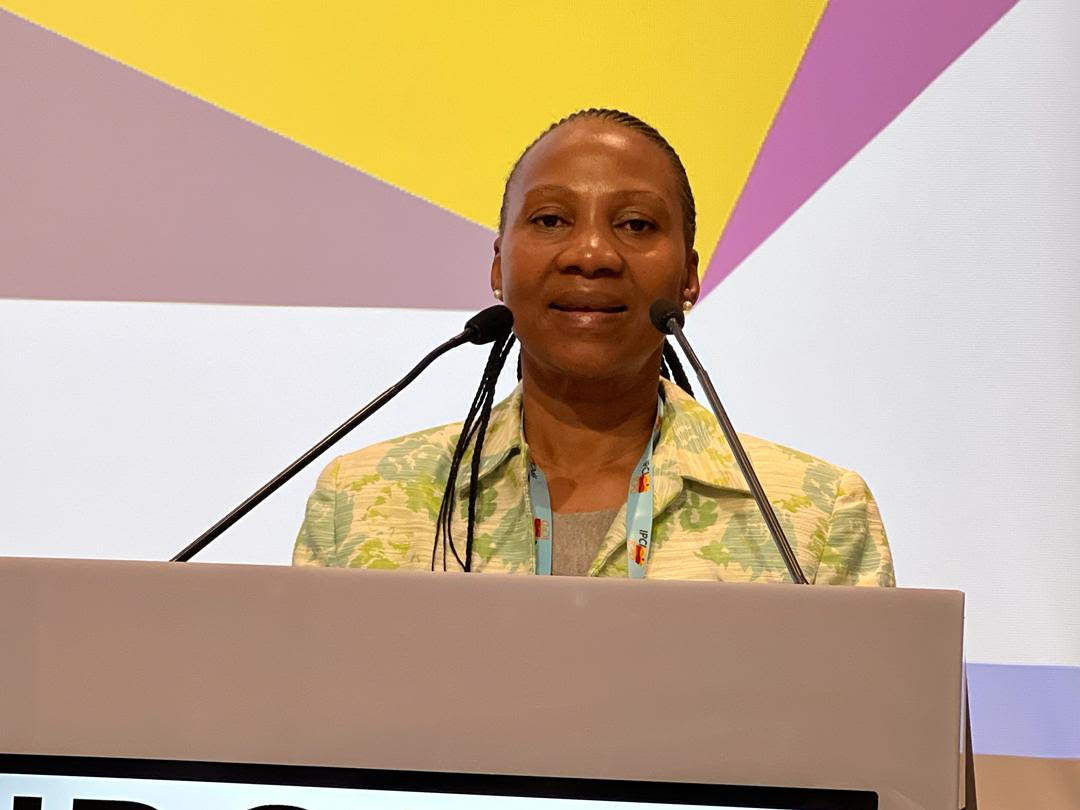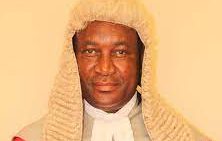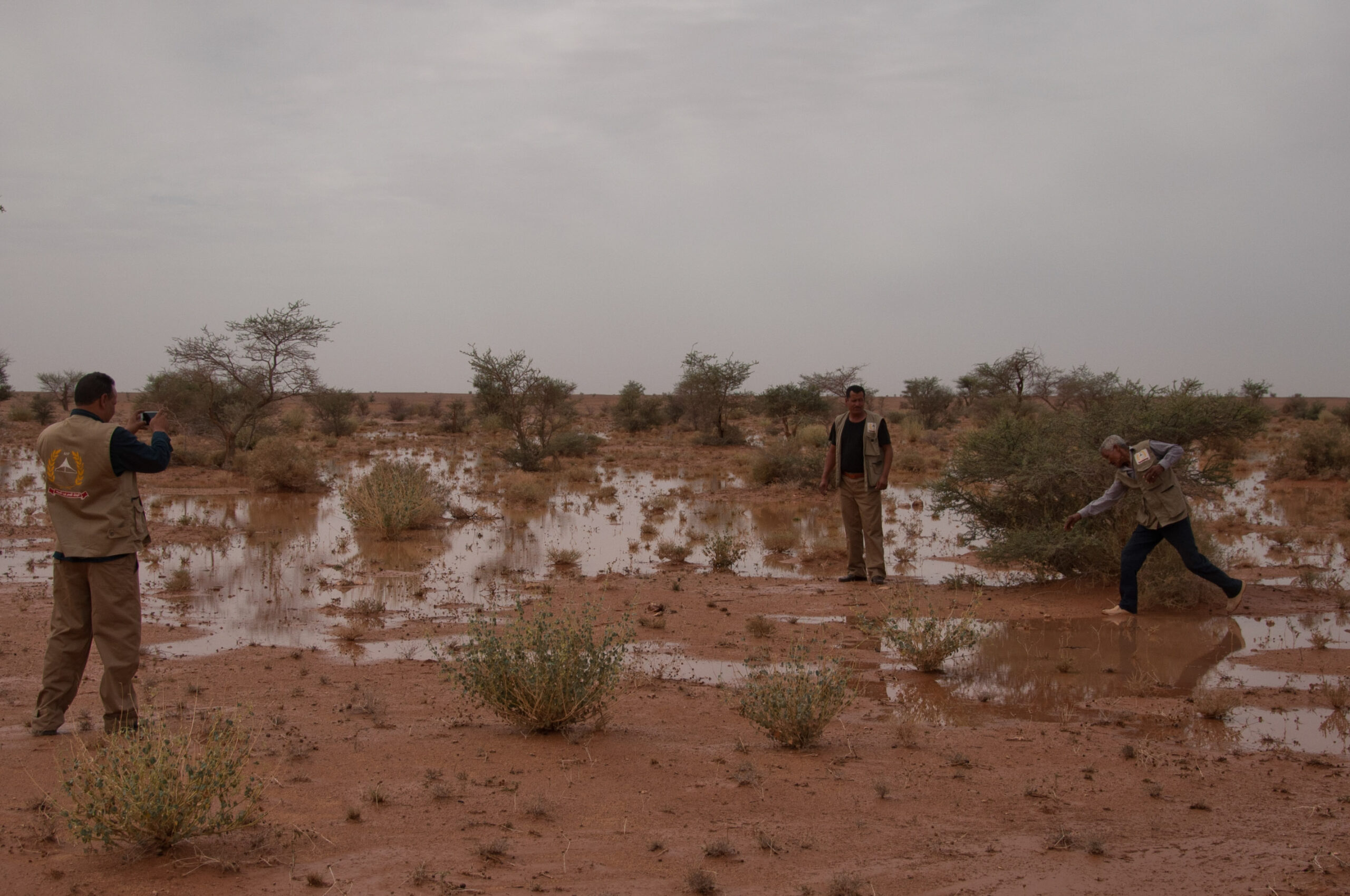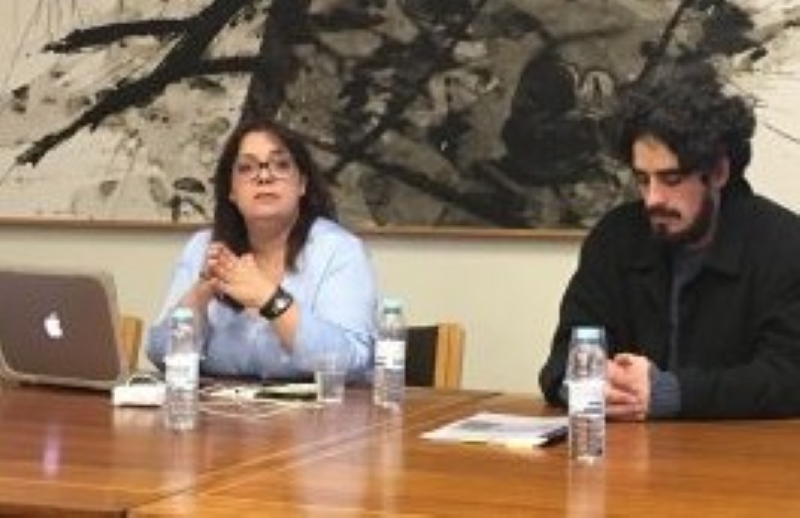
Mr. Sheuneni Kurasha, Manager of the Programme on Democracy, Governance & Human Rights at SADC PF. Photo: Moses Magadza, SADC PF.
By Moses Magadza
Windhoek, Namibia – A project titled, “Strengthening Parliamentary Capacity in the Southern African Development Community” that the SADC Parliamentary Forum implemented from 2019 to 2023 posted impressive results despite the impacts of COVID-19, an official has said.
Last week, Mr. Sheuneni Kurasha, Manager of the Programme on Democracy, Governance & Human Rights at SADC PF, highlighted some of the project’s successes.

The project sought to enhance parliamentary capacity in the SADC region, with a vision of transforming the SADC PF into a fully-fledged Regional Parliament. This transformation was endorsed by the 41st SADC Summit of Heads of State and Government in August 2021.
The Austrian Development Agency (ADA) funded the project which SADC PF implemented in partnership with Deutsche Gesellschaft für Internationale Zusammenarbeit GmbH (GIZ).
Kurasha explained that sixteen key activities were implemented, all aligned with the regional integration goals of the SADC Treaty, the Regional Indicative Strategic Plan 2020-2030, and SADC PF’s Constitution and Strategic Plan (2019-2023).
He said one of the most striking aspects of the project was its commitment to gender equality.
A comprehensive study examining barriers faced by women running for political office in selected SADC member states was conducted, with findings disseminated through policy briefs, fact sheets, and targeted guidelines on human rights and anti-corruption.
These efforts culminated in a Regional Policy Conference on Women in Politics, which heightened awareness and mobilised action towards greater gender parity in political participation.
Kurasha said in Lesotho, tangible legislative progress was achieved with the adoption of 21 provisions from the SADC Model Law on Elections into a draft electoral bill, reflecting a broader regional commitment to domesticate and implement democratic reforms inspired by the SADC Model Law on Elections.
He noted that the project promoted electoral reforms through a series of domestication meetings and technical assessments, ensuring that regional and international electoral standards were reflected in national legislation.
Through the project, the SADC PF formalised its collaboration with the Electoral Commissions Forum of SADC countries (ECF-SADC), thereby enhancing technical support for legislative reforms and fostering democratic elections across the SADC region.
According to Kurasha, strategic partnerships were established with leading non-state actors (NSAs) such as Amnesty International, the SADC Lawyers Association, and the SADC Alliance of National Human Rights Institutions and Ombudsman Offices.
These collaborations facilitated joint initiatives to embed human rights considerations within parliamentary processes.
Additionally, the development of Regional Principles and Guidelines on the Role of Parliaments in the Protection and Promotion of Human Rights marked a milestone.
These guidelines, crafted with input from regional experts and parliamentarians, were finalised during a workshop in February 2023.
The project enhanced parliamentary oversight mechanisms against corruption. By fostering institutional collaboration with regional anti-corruption NSAs, SADC PF empowered parliamentarians with the tools needed to hold governments accountable and promote transparency.
Capacity-building workshops equipped Members of Parliament (MPs) with the knowledge and skills required to uphold constitutionalism and the rule of law.
Kurasha noted that while the COVID-19 pandemic caused travel restrictions, the project leveraged digital platforms to maintain robust regional and international exchanges.
Bilateral online meetings with the East African Legislative Assembly (EALA), the Inter-Parliamentary Union (IPU), the ECOWAS Parliament, and the European Parliament facilitated the sharing of best practices.
These engagements led to the drafting of Special Rules of Procedure for Parliaments during Emergencies, enhancing legislative resilience in times of crisis.
The SADC PF’s observer status at the IPU and its role as the convenor of the SADC Political Group further solidified its influence on the global parliamentary stage, he explained.
A landmark outcome of these collaborations was the establishment of an annual benchmarking event with the Pan African Parliament (PAP), EALA, and ECOWAS Parliament, fostering continuous knowledge exchange and cooperation.
The project also prioritised the domestication and tracking of SADC Protocols, particularly those related to climate change governance and gender equality.
Tools were developed to monitor the implementation of these protocols, and motions were tabled to strengthen parliamentary involvement in climate mitigation and adaptation efforts in the face of frequency of tropical cyclones affecting SADC Member States.
Buoyed by the successes of the previous project, last week the SADC PF and the German Development Cooperation (GIZ) held a joint meeting to discuss steps leading to a signing of a Grant Agreement to implement a new project titled “Enhancing Accountability and Citizen Participation in Regional Integration through Regional Parliament.”
The three-year project, supported by €1.4 million in funding from the Austrian Development Agency (ADA), the European Union (EU), and the German Federal Government aims to bolster democratic governance, promote gender equality, and strengthen regional integration across SADC member states.
- Moses Magadza is the Media and Communications Manager at then SADC PF.









